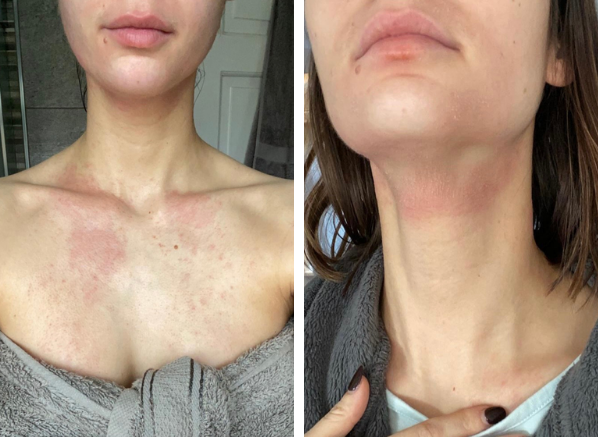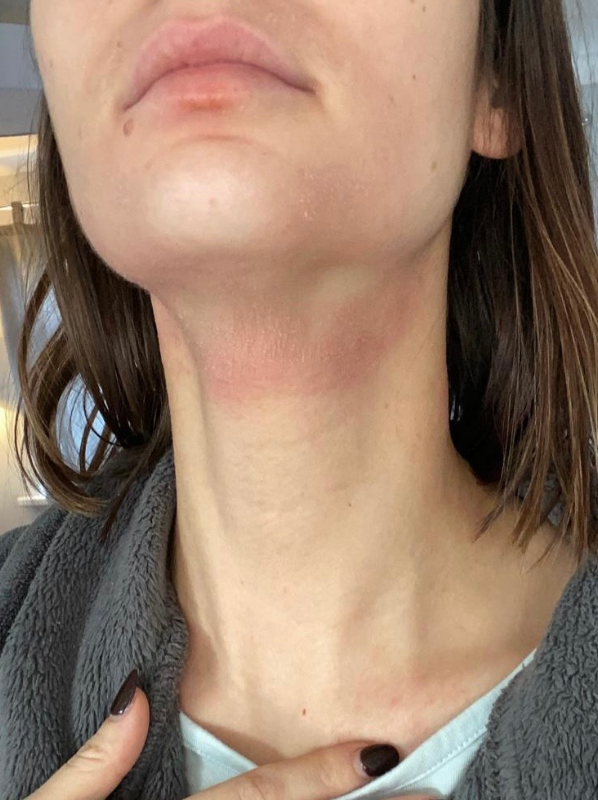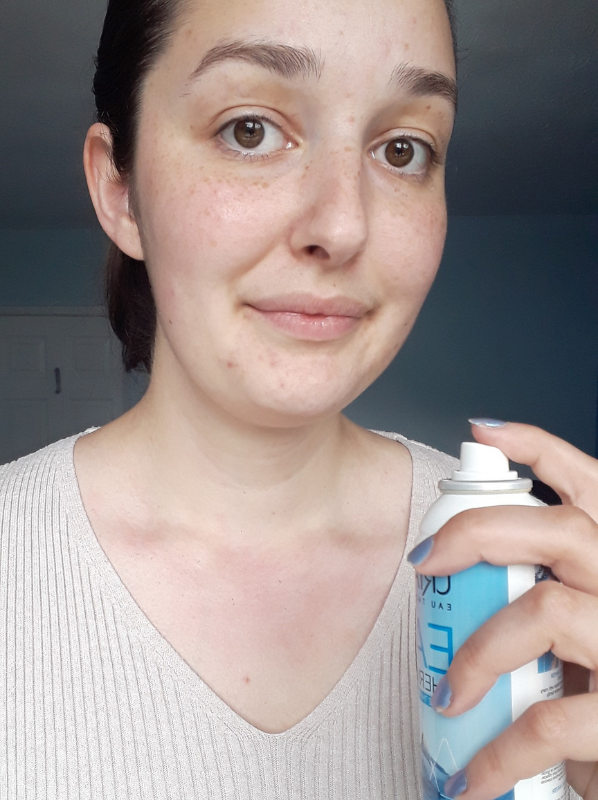
There’s no doubt about it: stress affects everyone differently. Some people suffer from gut issues and nauseousness, while others scarcely feel the effects of stress at all. But it’s not just the body that reacts in uniquely individual ways – our skin shows signs of stress in different ways too.
Of course, there are lots of top tips available to help you calm and relieve your skin during those busy, anxiety-inducing times in your life. But sometimes, listening to advice from those who have coped – and continue to cope – with troublesome skin is exactly what you need to hear.
So, we’ve reached out to some of the members of Team Escentual to explore their personal experience of stressed skin, explaining the things they’ve learnt along the way while offering their top tips on the matter…
Ceryn
Communications & Campaigns Editor

What’s your personal experience of stressed skin? One word: eczema. I have had it on and off for years; bouts of atopic dermatitis have been the bane of my skincare story. My eczema tended to flare up whenever I was stressed, which, you can imagine, made me even more stressed. My skin would become red, itchy, dry and flaky – a recipe for discomfort.
How do you deal with this? Learning to deal with eczema has been a very long process and one that hasn’t simply been solved by products. Mentally, I’ve had to accept that I have eczema, and that it would come and go, and that that was OK and didn’t make me any less. Adopting that mindset helped me control my flare-ups as I learnt not to stress when they occurred. Instead, I scheduled in some me-time to relax, and reached for my holy grail products. You can find a few of my die-hard skincare heroes in this edit.
Do you have any product recommendations for stressed skin? There isn’t a one-size-fits-all answer for this; it depends on why your skin is stressed. Whether it’s acne, sunburn, eczema, each one needs different attention. That said, the main thing is to be proactive and drink lots of water!
What’s your top tip on coping with stressed skin? Don’t stress about it. I know it’s easier said than done, but it’s so important. Your skin is your body’s biggest organ, so it can be a mirror to what’s going on inside. When your skin is showing signs of stress, listen to it and schedule in some relaxation time. I know you only asked for one top tip, but I have to say that your routine is crucial, especially when dealing with a recurring skin issue, like mine. Build a routine that works and find products you trust to return to.
Emily
Merchandiser
What’s your personal experience of stressed skin? My skin has always been sensitive. It flushes and reddens easily, and it has a tendency to be dry, dull and dehydrated – although I’ll admit that not drinking enough water is partly to blame for that. I also have psoriasis, so as soon as I’m stressed by illness, external situations or just not looking after myself, my skin will visibly show me it’s time to take a step back. My skin will even respond to changes in the weather, reminding me to switch up my routine. Often, I’ll get dry skin on my face and, as a result, my skin will show more visible lines, while also looking a little dull and lacklustre. My lips can crack and my hands will get really dry too.
How do you deal with this? For the most part, it means drinking plenty of water, maintaining a strict skincare routine and using fail-safe products that calm my mind as much as my skin. There are certain products you know will work time and time again, so as soon as I apply them, I know I’m taking the right steps to feel better. Things like using non-drying products in the shower, gently drying my skin afterwards and applying a moisturiser straight away – my personal preference is a dry, nourishing oil that glides over my skin easily.
While my skincare routine is normally as minimal as possible to save time and money, I will add and remove products as needed to address my concerns at the time.
When it comes to psoriasis, there is no quick fix; I simply have to break the itch-scratch cycle to make sure it doesn’t get worse. Adding in products specifically for psoriasis helps by targeting skin cell production and turnover.
Do you have any product recommendations for stressed skin? One of my go-to products is the Eucerin Aquaphor Soothing Skin Balm; you can use it anywhere and in so many different ways. It’s great on dry and cracked patches, or even as a lip balm or a makeup primer.
Recently, I’ve also been using Pharmaceris’ P Intensive Multifunctional Cream to moisturise larger areas of skin. It’s a new type of tar product that smells pleasant and feels great on the skin, all without leaving any marks on your clothing.
What’s your top tip on coping with stressed skin? What works for one person will work differently for another, so try not to get frustrated if it takes time to get the results you want. Learn what your triggers are and what works with your routine and budget, and try to find something that you like using so it feels like self-care.
Kate
Communications & Campaigns Assistant
What’s your personal experience of stressed skin? My first real experience of stressed skin started when I was studying for my GCSEs, although looking back now I’m sure I probably had lots of breakouts that were related to stress – I just didn’t realise it at the time!
The main symptom I’ve struggled with is eczema. I had a patch of eczema in the crease of my elbow, which first appeared during my GCSEs and continued to flare-up around exam times until I finished university. I do sometimes struggle with this condition – more so when it’s the summer and I overheat while sleeping – but I haven’t really had any major struggles with it since finishing my studies.
I still get my fair share of stress-related breakouts too, although these don’t have as much of a negative impact on me as the pain and discomfort associated with eczema or rashes, and I usually just pop on a spot treatment as and when breakouts appear.
How do you deal with this? When I first struggled with eczema, I popped into the chemists and I was recommended two creams to use alongside each other. They both worked well and I managed to get the condition under control. Thankfully, I haven’t really had a major flare-up since finishing university, but if I sense some minor irritation, I’ll make sure to pop some cream on to nip it in the bud.
Do you have any product recommendations for stressed skin? Like I said, I haven’t struggled with a full-on flare-up in a while, but I did have some irritation on my neck and chest as I began working on this series, which I think was linked to both stress and overheating. So, I tried La Roche-Posay’s Lipikar Baume (luckily, I’d received a mini sample in my Escentual order!) It worked well for me and helped to calm my skin and keep itching at bay (which is always hard to resist when you’re struggling with redness, irritation and rashes.) On this occasion, I also used Uriage’s Thermal Water in between applying this cream when I wanted a cooling, soothing boost for my skin without adding excess product. This worked really well for me as it calmed my skin; I love the fact that it simply consists of 100% natural water, so I felt comfortable spritzing it on my skin multiple times a day.
What’s your top tip on coping with stressed skin? Personally, I’d say finding a routine that works for you is the most important thing – and of course, sticking to it. Don’t be afraid to ask for help or advice from your GP or a dermatologist either; they can help you work out what your skin needs and the type of skincare products that might be best for your skin. I’d also say, don’t be afraid to treat your skin even when it seems like a minor sign of a flare-up; it’s better to treat it before it gets out of hand when it’s trickier to reverse the irritation.
And of course, stressed skin is exacerbated by our lifestyles, so it’s always important to take care of yourself, be kind to yourself and to acknowledge the things that negatively impact your wellbeing. Then, make time to do the things that make you feel better in yourself, whether that’s a pamper night, saying no to that event that’s leaving you anxious, asking for help with a project you’re working on or talking to a loved one or a medical professional.





